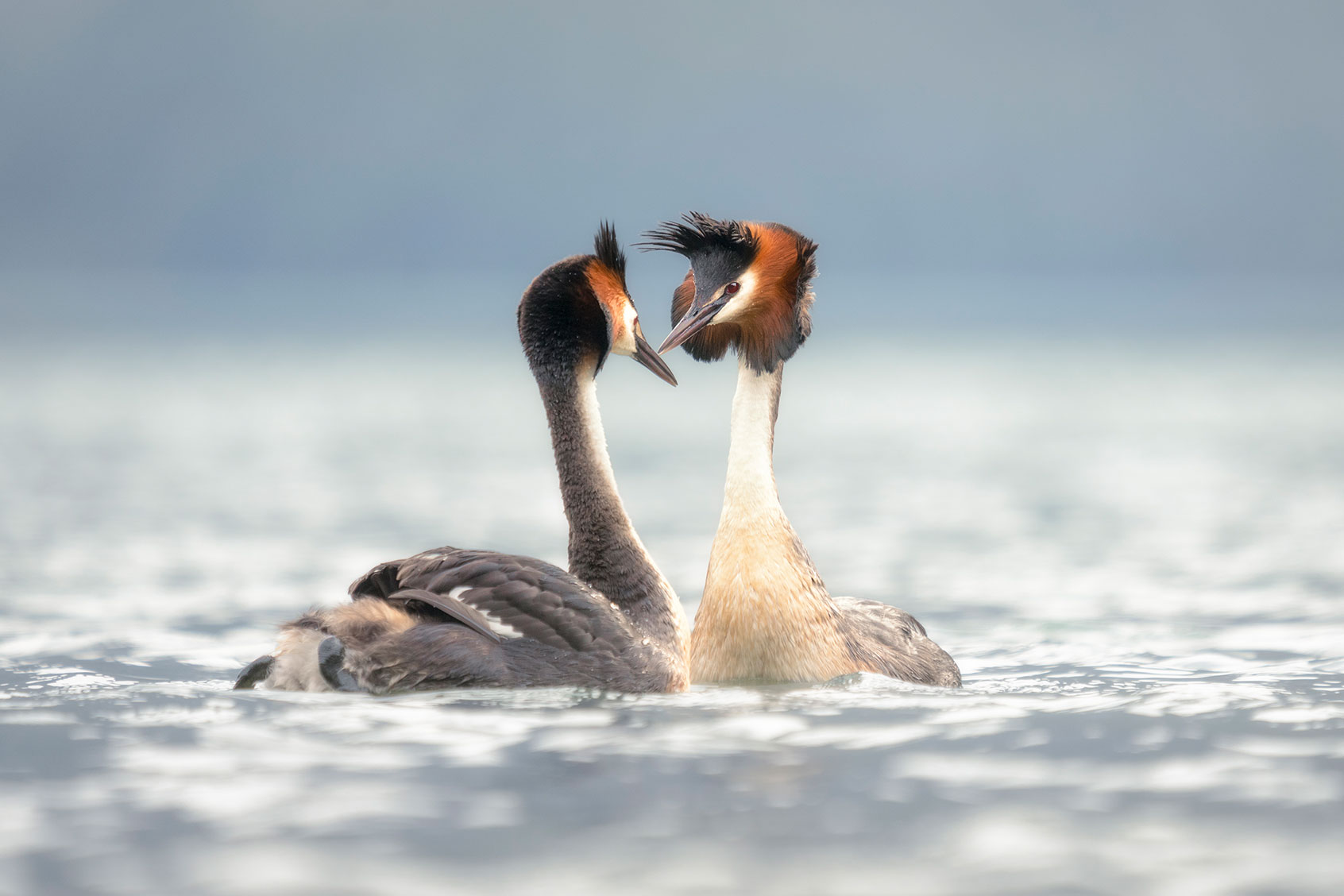The bird has a mullet. It eats its own feathers with such gusto that it regularly vomits them back up. And — thanks to a British comedian who identified with its awkward mating habits — it is now New Zealand's Bird of the Century.
It eats its own feathers with such gusto that it regularly vomits them back up.
Meet the pūteketeke, also known as the Australasian crested grebe.
The pūteketeke garnered international headlines after being vociferously championed by "Last Week Tonight" host John Oliver, who wanted the charismatic waterfowl to win an award for Bird of the Century that is given through a process of voting by the New Zealand conservation group Forest and Bird. Although Forest and Bird usually holds its annual contest to anoint a lucky bird as Bird of the Year, the organization decided to crown its 2023 winner as Bird of the Century to honor the organization's centennial anniversary.
While the contest is not known for being a celebrity-studded affair, Oliver gave it an infusion of star power when he took to the airwaves to plead the pūteketeke's case. In addition to advocating for it on his own program, Oliver also sponsored ad campaigns in London, Mumbai, Paris and Tokyo; flew a banner over a beach in Brazil; and even appeared on "The Tonight Show with Jimmy Fallon" while dressed in a giant pūteketeke costume.
“They are weird puking birds with colorful mullets. What’s not to love here?” Oliver proclaimed to his audience. He also expressed admiration for the bird's parenting skills, in which both males and females raise their young equally, and he joked that he could identify with their mating ritual, as the birds will “grab a clump of wet grass and chest bump each other before standing around unsure of what to do next."
Oliver concluded, “I don’t just want the pūteketeke to win. I want it to win in the biggest landslide in the history of this competition."
Want more health and science stories in your inbox? Subscribe to Salon's weekly newsletter Lab Notes.
In the 1980s the New Zealand population of the Australasian crested grebe was at a precipitously low number of roughly 200 birds.
Thus, one can understand Oliver's passion for pūteketekes. In addition to the trivia that Oliver listed, the pūteketeke is also fascinating because of its beautiful appearance. The Australiasian crested grebe is moderately-sized with a lengthy and slender neck and a large black bill. Its head contains a double black crest and also has cheek frills colored bright chestnut and black. It also has dark chestnut-brown upper plumage with silvery white underneath.
But this bird was almost driven to extinction. In the 1980s the New Zealand population of the Australasian crested grebe was at a precipitously low number of roughly 200 birds. Thankfully, conservation efforts allowed the population to increase to roughly 400 birds by 2004 and 600 birds by 2012. To this day, the New Zealand population of the birds remains under 1,000.
We need your help to stay independent
Their nests are made of sticks and waterweeds and can float on the water, and the females usually lay clutches of 5 to 7 eggs. Although they primarily eat fish, they also can consume aquatic invertebrates. They also apparently consume votes, as a record 350,000+ individuals from 195 countries voted in the contest, beating the previous record of 56,733 verified votes.
"Pūteketeke began as an outside contender for Bird of the Century but was catapulted to the top spot thanks to its unique looks, adorable parenting style, and propensity for puking," Forest and Bird chief executive Nicola Toki said in a statement.
Took added, "We're not surprised these charming characteristics caught the eye of an influential bird enthusiast with a massive following."

